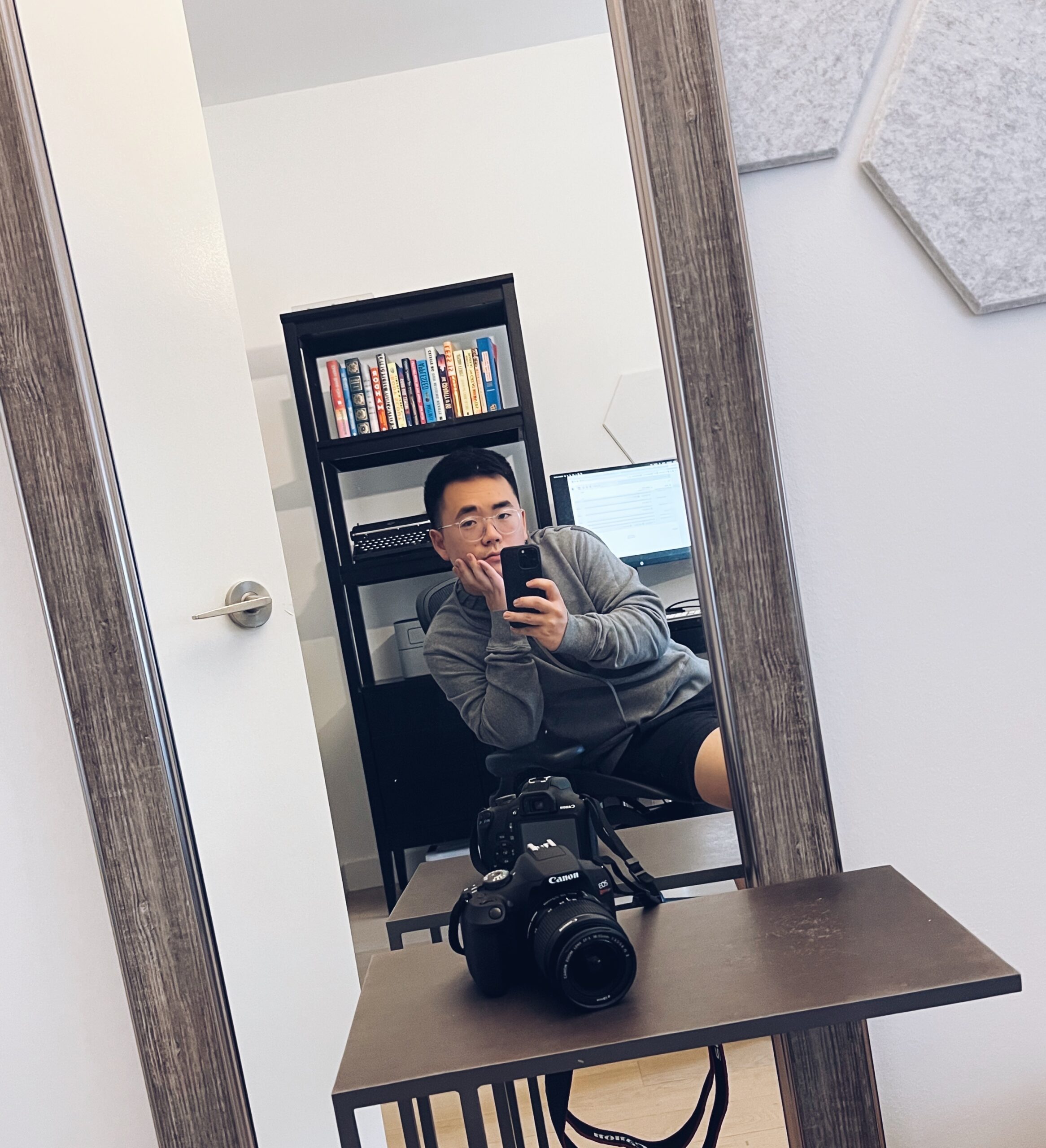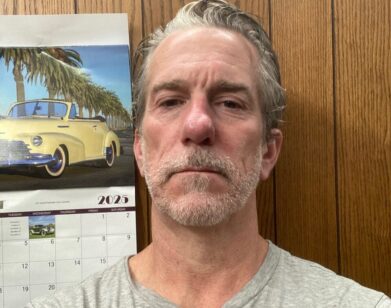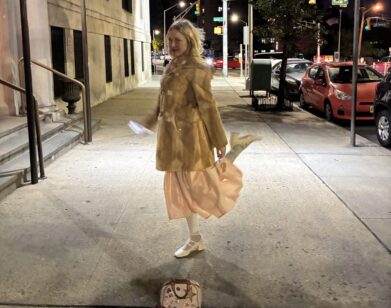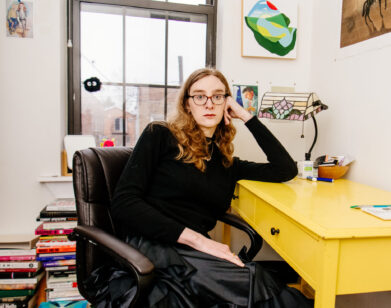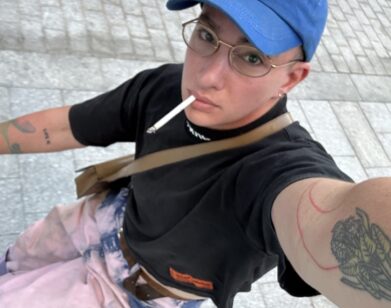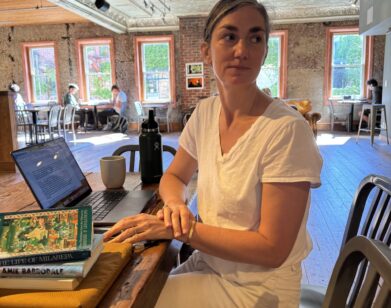OPEN BOOK
Jinwoo Chong on Ling Ma, Prince Harry, and Curating High-Brow Bookshelves
This is OPEN BOOK, a monthly column in which we ask debut authors about their reading and writing habits. Last month, we featured Dizz Tate, who recently published Brutes, a haunting tale of girlhood set in the Florida swamps. For this installment, we spoke with Columbia MFA grad Jinwoo Chong about his new book, Flux, an unexpected sci-fi novel that integrates time travel and tech dystopia into the complex emotional landscape of its three narrators as they explore grief, trauma, and Asian-American identity. From his longtime love of The Kite Runner to an awkward early-career encounter with a big suit at a major publishing house, Chong gets candid in our questionnaire below.
———
Where do you like to write?
I write at the roughly 30% of my desk that is not currently monopolized by my work computer and extra screen. I pretend to write on the couch, in bed, at my kitchen counter, and in the corners of coffee shops or hotel lobbies.
When do you like to write?
After everyone else is asleep, and when my writing light—an alabaster desk light my mom found at HomeGoods that sits on my bookshelf and notifies my neighbors that new work is on the horizon—is switched on.
What’s the first thing you did after you turned in a draft of your novel?
I walked to the Milk Bar outpost at the Columbus Circle Nordstrom and bought a slice of the birthday cake for 11 dollars.
Tell us about a formative early reading experience.
Listening to The Kite Runner on tape with my parents while driving back and forth between our house and Fort Lee about an hour away every few weeks to see my grandparents, visit the barber for whoever needed a haircut that month, and replenish our kimchi reserves. It was, most likely, the first book for adults that I recall encountering, and remains today a book I return to every few years, to remind myself of the wonder I felt hearing it for the first time.
The last book you loved, and why?
Ling Ma’s Bliss Montage. Engrossing, poignant, and utterly, consumingly sad. Her protagonists capture millennial apathy with such clarity for me. Even while her worlds are much more imaginative than our own, it’s easy to recognize these characters in myself and those around me: heads down, working toward indefinite goals, just trying to stay alive.
The last book that disappointed you, and why?
Prince Harry’s book was… fine. Even if I’d basically already read it by reading every article that divulged its secrets before its on-sale date. And then again, did it really disappoint me? Or was it exactly what I was expecting?
Hardcover or paperback? Why?
Paperbacks are easier to hold than hardcovers. But nothing beats the look of a fresh dust jacket. When I saw mine for the first time, my book became real.
A book you think should be in the canon but isn’t:
‘The canon” is not an important term for people who read a lot of books. It is, to me, a marketing word on the same level of “bestseller” that is designed to let busy people know what to read and pretends to be the standard among all readers, when it actually means different things to different people. Everything I think should be in my canon already is.
A book you think shouldn’t be in the canon, but is:
See above. But also, Heart of Darkness.
What’s your favorite bookstore(s)?
Book Culture in Long Island City, Shakespeare & Co on the Upper West Side, Greenlight in Brooklyn, where I had my first ever event, and The Strand, where Alexander Chee and I will be launching my debut novel.
What do you look for in a reading experience?
Anything that makes reading more appealing than other things I love. Some instances in reverse chronological order: when I sat on the beach in Asbury Park for four hours and read Emily St. John Mandel’s Sea of Tranquility without even going in the water; when I skipped the season finale of “Abbott Elementary” to finish The Plot by Jean Hanff-Korelitz; when I sat in the car for an hour in the hot summer to finish the end of The Kite Runner while my family brought our Fort Lee groceries inside. I have no regrets.
How do you arrange your bookshelf?
In the most impressive, inaccessible, high-brow-forward orientation I can think of, curated for whoever might be coming over to see it.
Have you ever lied about having read a book? If so, which one?
When I was a 20-year-old publishing intern at Simon & Schuster, then-editor-now-CEO Jonathan Karp asked me at an office mixer for the last book I’d read that had shaken my core. I said: Scrappy Little Nobody, by Anna Kendrick, which was a title I was helping the marketing department with that week. We did not speak further.

